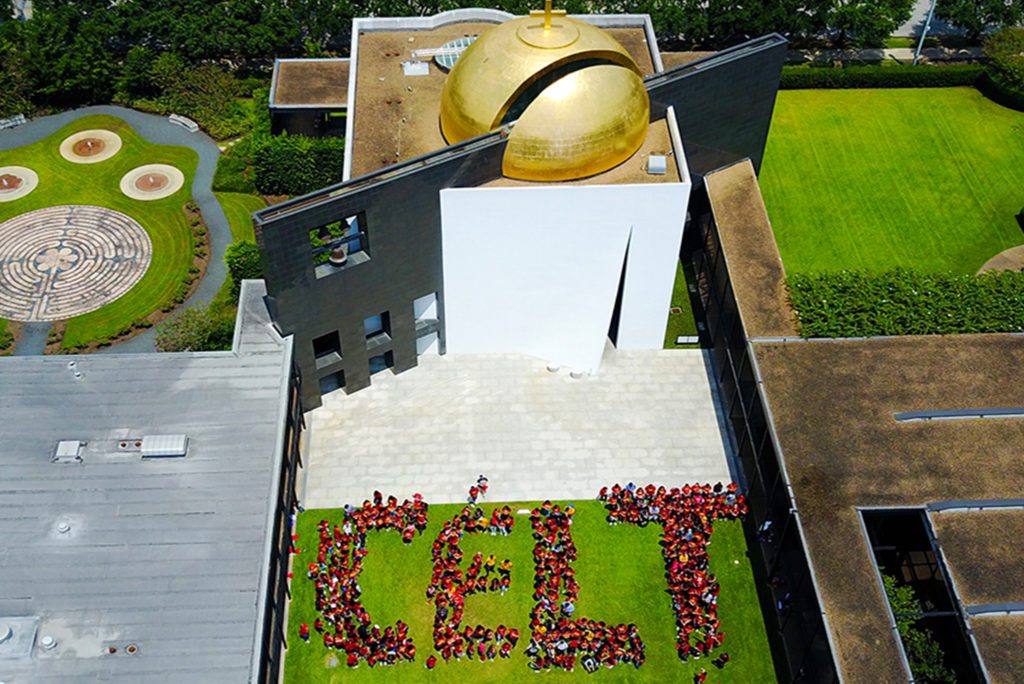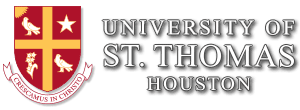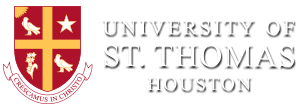Be Bold Blog
The University of St. Thomas (UST) is Houston’s Catholic University, committed to the Catholic intellectual tradition and the dialogue between faith and reason. Our blog is dedicated to helping you explore your future career possibilities and how to make the most of your college experience.
Exploring the Benefits of Catholic Education

Whether you identify as Catholic, a person of faith or completely non-religious, you can reap the benefits of Catholic education. The University of St. Thomas (UST), located in the heart of Houston, Texas, is one of more than 200 Catholic colleges and universities in the United States. We are proud to contribute to the long legacy of Catholic intellectual tradition and foster the next generation of ethical leaders.
Keep reading to learn more about the benefits of a Catholic education with expert insight from Dr. Jon Kirwan, director of Graduate Programs and assistant professor at UST.
Why is Catholic education important at UST?
UST’s Catholic identity has shaped and informed our programs and teaching since the university was founded by the Basilian Fathers in 1947. Our school is meant to embody the principles of Ex Corde Ecclesiae, i.e., the religious, ethical and intellectual traditions of Catholic higher education.
The Basilian Fathers were then, and still are today, innovative scholars and teachers who have made enormous contributions to higher education. One of their most enduring and influential teachings is their commitment to open-mindedness and exploration. The following Basilian tenants were once considered controversial, although now are highly regarded:
- That the faith of Catholic students would be strengthened by the encounter with other worldviews if it was carefully nurtured and protected by Basilian tutors
- That secular (non-religious) university students might benefit from Catholic influence
- That the inevitable philosophical and theological differences that would become plain to Catholic students encountering other intellectual traditions would ultimately enhance their undergraduate education
According to the Basilian worldview, a high-quality education is not achieved by mastering a single discipline. Rather, one must integrate a breadth of knowledge from many different spheres of influence. This idea is reflected in UST’s core curriculum, which is further explained below.
3 surprising benefits of a Catholic education
Now that you have a better grasp of the intellectual framework that informs UST’s programs, let’s explore three of the many benefits of a Catholic school education:
1. Catholic education strives to develop “the whole person.”
Although it is difficult to come up with a singular definition, one widely accepted explanation of Catholic education reads as follows:
“Catholic education proposes to form the whole person — mind, heart and hands — for flourishing in this life and the next.”
This notion of the “complete person” is the cornerstone of UST’s teaching philosophy. “Educating the whole person demands a full immersion into the liberal arts. It’s all of these things together that help shape who you are,” explains Dr. Kirwan. “When these things are sidelined, the student suffers.”
All UST students must complete the core curriculum, which is based in the seven classical liberal arts: rhetoric, grammar, logic, music, arithmetic, geometry and astronomy. Liberal arts education is the oldest method of higher education in Western history, spanning almost 2,000 years. At UST, these examples of liberal arts classes include:
- Theology
- Philosophy
- English
- History
- Social and behavioral sciences
- Natural science
- Mathematics
- Fine arts
The goal of UST’s liberal arts education is to prepare students who are wise and virtuous participants in civic life. Through our teaching, we nurture growth of the whole person in mind, body and spirit.
2. Catholic education develops critical thinkers and ethical leaders.
In society and in the job market, people with excellent critical-thinking and ethical leadership skills are needed now more than ever. A Catholic liberal arts education intentionally exposes students to a wide array of thoughts, ideas, beliefs and worldviews, many of which may contradict each other. It is at these fault lines where the opportunity for real learning begins.
Dr. Kirwan explains that in recent years, many fields that formerly hired highly technical candidates are now seeking students with liberal arts training. “Students who have a narrow educational focus lack a fuller understanding of what it is to behave as a human being in a very complex and challenging environment,” he says.
“Employers are looking for people who can work through difficult questions with grace and leaders who have a firm ethical mooring,” Dr. Kirwan adds. “There’s a huge crisis of confidence in leadership right now. Many people see leaders as utilitarian thinkers whose ends always justify the means. The principles of justice and the greater good often fall by the wayside.”
Ethical leaders are those whose actions are guided by the values of:
- Goodness: Serving God in faith and love by giving of ourselves to students, colleagues and society.
- Knowledge: Pursuing truth and academic excellence in the Catholic intellectual tradition, emphasizing the dialogue between faith and reason.
- Discipline: Demanding personal responsibility, accountability and integrity in ourselves and in one another.
- Community: Building and nurturing relationships that transform our lives, our university and our world.
3. Catholic education inspires students to deepen their faith.
For students who were raised in a Catholic household or discovered their spirituality later in life, attending the University of St. Thomas is the best of both worlds. They have the chance to grow as a student of the world and as a scholar of the church.
“Many Catholic students relish the opportunity to grow closer to God and grow stronger in their faith,” Dr. Kirwan shares. “They develop a deeper understanding of the Catholic philosophical world view and explore the roots of faith, scripture, tradition and the church’s teachings.”
UST is one of only 17 U.S. Catholic colleges and universities recommended by the Cardinal Newman Society and one of 35 “Faithfully Catholic Colleges and Universities,” according to the National Catholic Register. It should come as no surprise that there are many Catholic events and activities on campus, including:
- Liturgical programs
- Retreats
- Bible studies
- Volunteer experiences
- Academic and spiritual integration
- Liturgical music
- Religious education courses
- Prayer groups
- Campus Ministry
How do non-religious students benefit from a Catholic education?
While UST is a proudly Catholic institution, we welcome undergraduate and graduate students of all faiths and of no faith. Our student body reflects the rich diversity of the city itself.
“Our liberal arts approach and commitment to educating the totality of a person is grounded in the human experience. It’s something that everyone can find value in, not just Catholics,” Dr. Kirwan shares. “Our faith is not diminished by the existence of other traditions, religions or worldviews.”
Reap the rewards of a Catholic education
It’s clear that a Catholic education gives students of all backgrounds the chance to grow, learn and gain valuable skills and experience. This is one of the many educational advantages UST offers its students.
Learn more about how you’ll benefit from these other attributes:
Ready to take the next step?
Related articles
About UST
The University of St. Thomas (UST) is Houston’s Catholic University, committed to the religious, ethical and intellectual traditions of Catholic higher education. For more than 70 years, we’ve been graduating students like you into successful careers in medicine, education, business, public administration and more – throughout Houston and across the globe.

